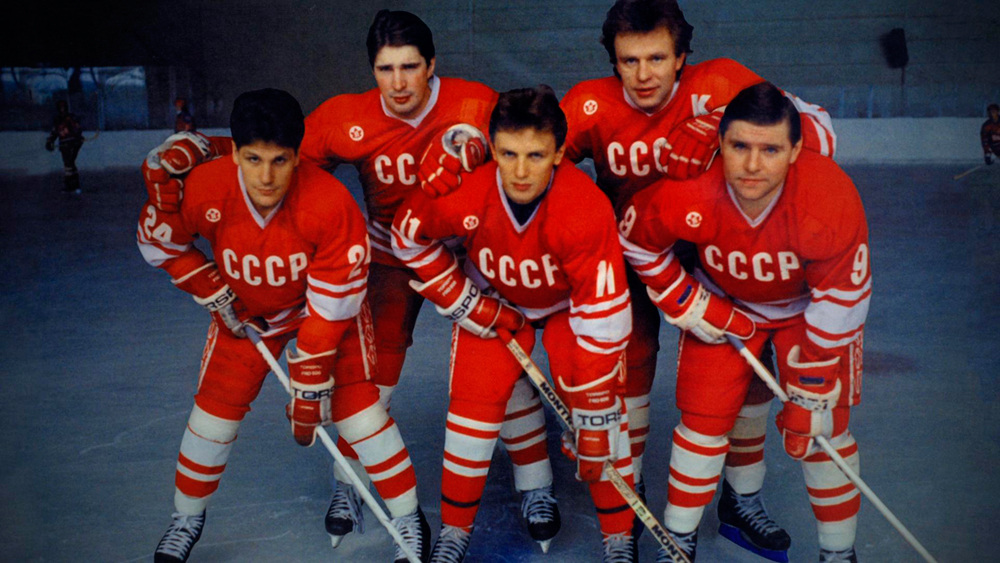The team was not just trained to win, it was trained to prove Communist ideology was better than American Capitalism. The Red Army members were considered heroes in Russia (people always liked victories, right?) and served propaganda purposes. The training itself was horrible: 11 months in a camp away from their families, up to 5 trainings a day, etc. But what can I say, it was working. They were the best, they were literally flying on ice. It’s that impressive.
While invited to the US and Canada for games, and being exposed to overwhelming luxury (the West’s method to prove its superiority), Slava Fetisov says he never even considered escaping and betraying its country. This proves his sense of honor and loyalty towards his nation; when on the other hand he's not afraid to defy the highest authorities after they deceived him. The NHL (National Hockey League) offers him the chance to play for them -- several times -- while Fetisov is promised twice by the Soviets: “if you win the championship, you’ll go play for the Americans.” But doing what they said they’d do didn’t exactly define the USSR.
The movie also explores the bonds the players developed: they were like brothers; and in parallel, Red Army shows the power of the Soviet state: it made Fetisov’s best friend deny him publicly, after he announced he would not play for the Red Army anymore. What's more after this, Fetisov was refused everywhere because ice field’s owners were afraid of being killed if they let him in.
Whether it was on purpose or not, one thing that surprised me is the director’s attitude. Facing Fetisov, Polsky seems very shy, even frightened. He doesn’t insist when he doesn’t get the answer he is looking for... Well, everybody is not Michael Moore, I guess.
Grade: B+

 RSS Feed
RSS Feed
